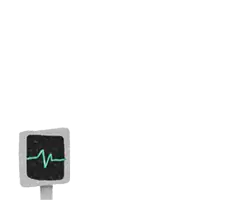Part 9Cost recovery
113Principles of cost recovery
The Minister and the Director-General are to take all reasonable steps to ensure that so many of the direct and indirect costs of administering this Act as are not provided for by money appropriated by Parliament for the purpose are recovered under this Part, whether by way of fees, levies, or otherwise.
In determining the most appropriate method of cost recovery under section 114, and its level, in any particular case or class of cases of animal material or product, animal product business, person, or other matter, the Minister and Director-General are to have regard, as far as is reasonably practicable, to the following criteria:
- equity, in that funding for a particular function, power, or service, or a particular class of functions, powers, or services, should generally, and to the extent practicable, be sourced from the users or beneficiaries of the relevant function, power, or service at a level commensurate with their use or benefit from the function, power, or service:
- efficiency, in that costs should generally be allocated and recovered in order to ensure that maximum benefits are delivered at minimum cost:
- justifiability, in that costs should be collected only to meet the reasonable costs (including indirect costs) for the provision or exercise of the relevant function, power, or service:
- transparency, in that costs should be identified and allocated as closely as practicable in relation to tangible service provision for the recovery period in which the service is provided.
Costs should not be recovered under this Part unless there has been
consultation with affected parties in accordance with section 163, and the parties involved have been given sufficient time and information to make an informed contribution.Nothing in subsection (3) or section 163 requires consultation in relation to specific fees or charges, or the specific levels of fees or charges, so long as the fees or charges set are reasonably within the purview of any general consultation or any consultation carried out for the purposes of section 116, and a failure to comply with subsection (3) does not affect the validity of any regulations made for the purposes of this Part.
Nothing in this section requires a strict apportionment of the costs to be recovered for a particular function or service based on usage, and, without limiting the way in which fees or charges may be set, a fee or charge may be set at a level or in a way that—
- is determined by calculations that involve an averaging of costs or potential costs:
- takes into account costs or potential costs of services that are not directly to be provided to the person who pays the fee or charge but which are an indirect or potential cost arising from the delivery of the service in question to a class of persons or all persons who use the service.
Notes
- Section 113(3): amended, on , by section 142 of the Food Safety Law Reform Act 2018 (2018 No 3).


